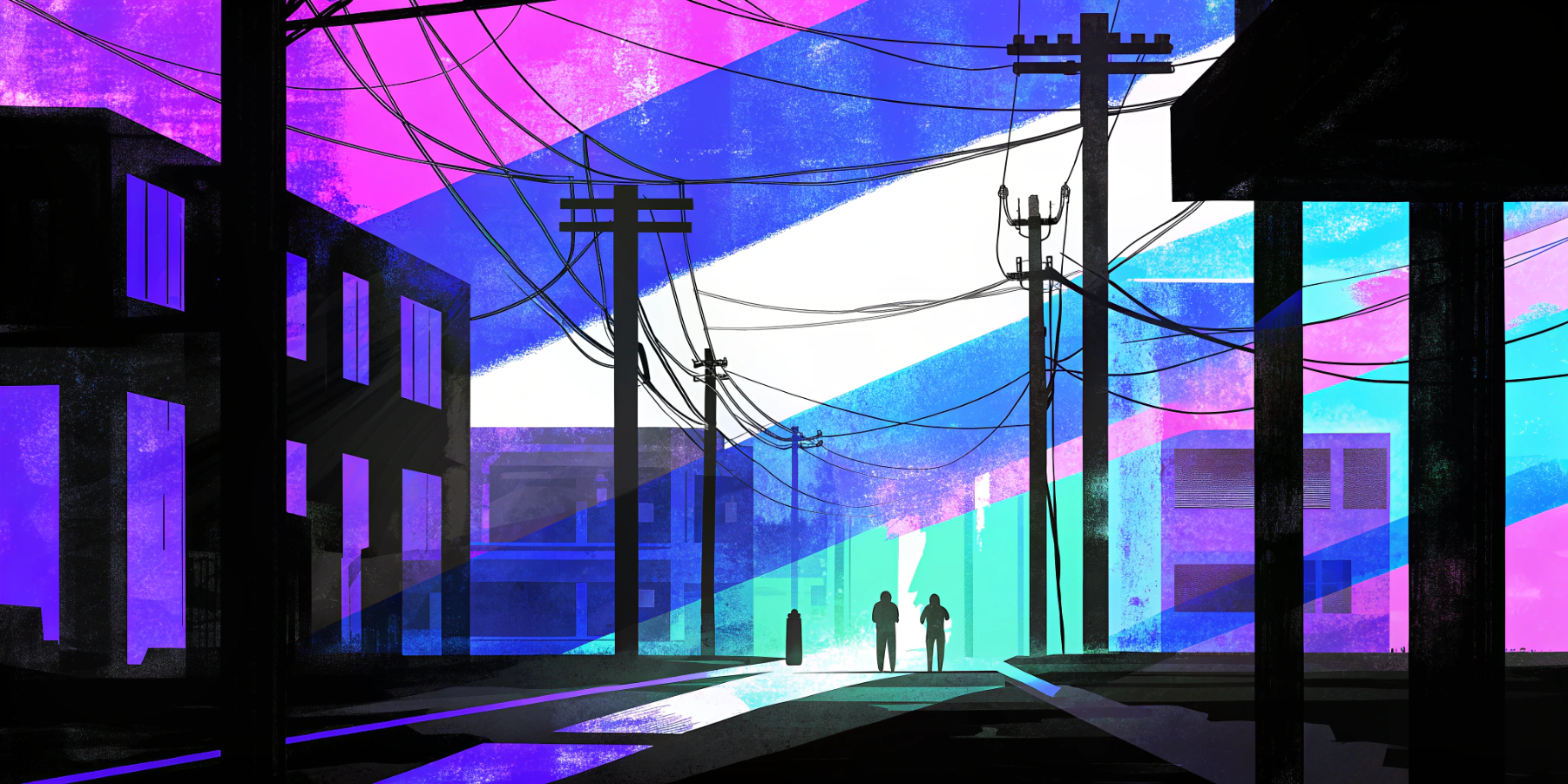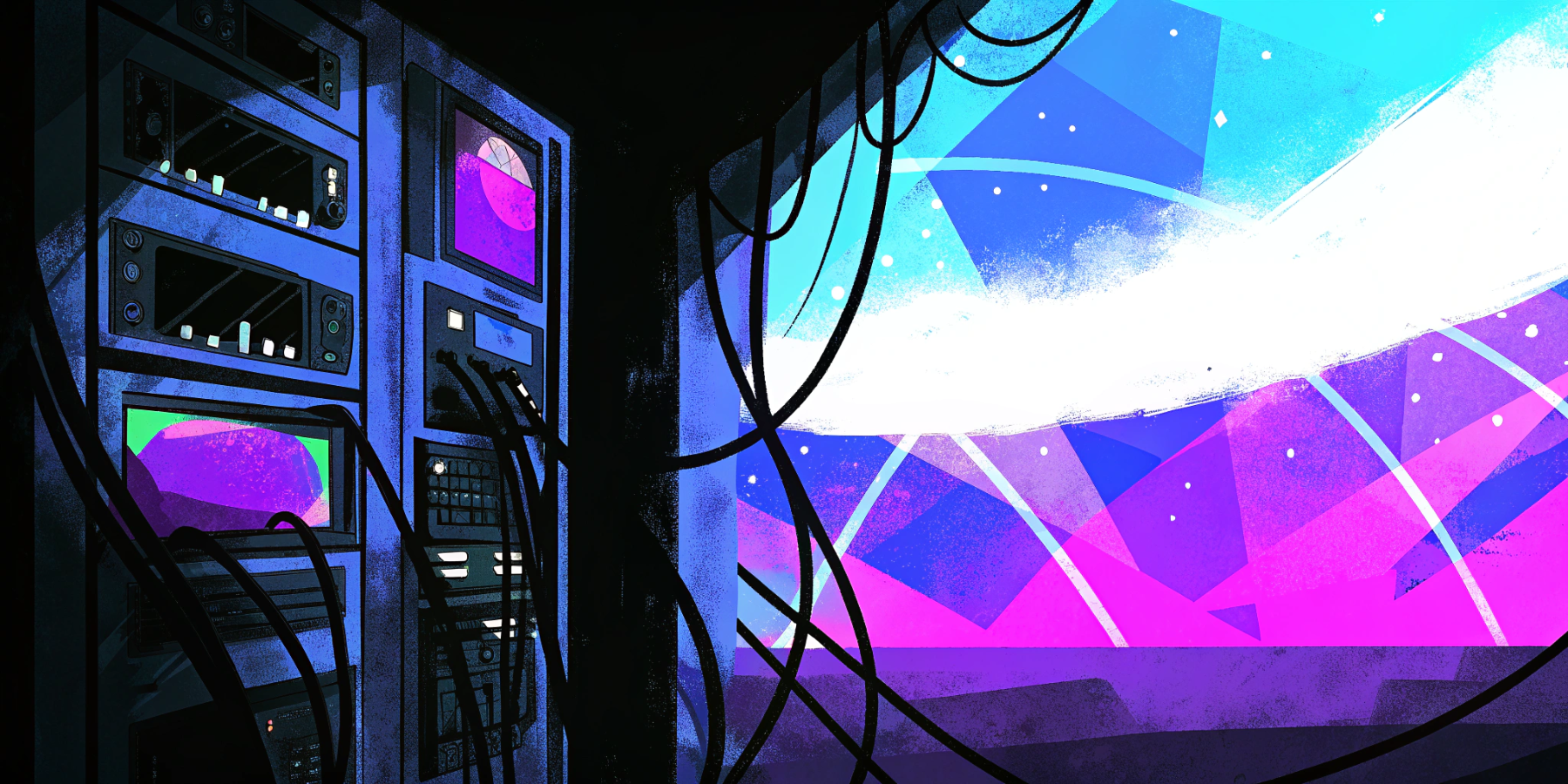Simply scrolling through LinkedIn or Alignable, we see the WordPress chatter going on, and it's starting to. sound something like this: “You don’t need to switch platforms, you just need to build better sites.” “There's a better way to build WordPress,” “Gutenberg is a great editor, it's just under‑utilized.” That right there is sunk-cost logic crying out from those who are panicking about the industry shift away from WordPress.
We know WordPress agencies have sunk years and tens of thousands of hours into building plugins, reusable themes, and client training, so of course, they need to continue to defend an aging tech stack that taxes every release with risk and rework. We know this because we used to be one of those agencies.
Technology is evolving—so why aren't WordPress agencies using it?
There’s a clear shift happening in web development: modern teams are adopting stacks that prioritize speed, clean code, and flexible content workflows. Headless CMS platforms like Storyblok and frontend frameworks like Astro are leading that change.
Meanwhile, WordPress—while still dominant in raw numbers—is showing its age. What used to be flexible is now fragile. What used to be fast to launch is now slow to maintain. Its monolithic architecture, plugin sprawl, and reliance on patch-based workflows make it harder to scale, govern, and iterate.
For agencies, sticking with WordPress isn’t about what's best for the client—it’s about what’s already been built. But that decision has a cost, and the web is moving on with or without them.
So why are agencies still pushing for WordPress?
One of the key reasons we want to cover in this article is the Sunk-Cost Fallacy: "staying the course because you’ve already paid for it—even when a better option is obvious."
Here are the top reasons we think keeps agencies from moving away from WordPress.
- They’ve built internal tools around it and don’t want to start over. Years of investment into custom plugins, starter themes, and block libraries make it hard for agency leaders to justify a clean break—even when those tools now slow things down.
- They get most of their leads by marketing themselves as WordPress experts. Their SEO, blog content, and sales pitches are built around WordPress. Changing direction could cost visibility and sales until new positioning takes hold.
- Their teams are trained to deliver WordPress sites quickly—even if the tech is outdated. Shifting to a modern stack means retraining developers, project managers, and support staff. Most agencies delay that effort because the current process “still works.”
- They rely on WordPress problems to generate recurring revenue. Emergency fixes, plugin conflicts, and performance tuning are built into the retainer model. A more stable stack reduces those pain points—which looks like lost income unless they change how they define value.
- Their past work and case studies are all built on WordPress. That makes it easier to sell “what they’ve already done” than to invest in new work that shows what’s possible with headless solutions.
- They work with subcontractors who only know WordPress. Changing stacks means changing their entire delivery team—and that’s a risk most agencies avoid.
- They receive perks from WordPress hosting and plugin partners. Whether it’s revenue-sharing, affiliate links, or agency certifications, these incentives often influence tech recommendations behind the scenes.
What this sounds like in social chatter.
- “You don’t need to switch platforms.”
Translation: Our pipeline and delivery playbooks are tuned for WordPress; switching costs us more than it costs you. - “Just use Gutenberg better; it’s under‑utilized.”
Translation: We’ve invested in blocks and training; we’re incentivized to keep them billable. - “We’ll fix anything that breaks with our required WordPress maintence plan”
Translation: Our retainer model monetizes remediation; a leaner stack would remove much of this work.
What shows up in website projects
- Familiar plugin bundles are chosen before requirements are fully defined.
- Performance signed off with heavy caching, then erodes as features are added.
- Longer QA windows and rollback drills to manage change‑failure risk.
- Editors warned about “do/don’t” rules instead of getting safe, reusable blocks.
The cost to clients
You pay with slower releases, more regressions, and slower performance, and roadmaps dominated by updates, not outcomes.
What We're Doing:
- Using a flagship headless stack (Astro + Storyblok) and invest deeply.
- Reframing retainers around outcomes—performance, conversion, and iteration—not firefighting.
- Replacing ad‑hoc WP specialists with component‑first engineers.
- Rebuilding our portfolio with clean, outcome‑backed headless case studies.
- Being transparent with clients about why the shift matters: less risk, faster shipping, better results.
Agencies don’t have to cling to sunk costs. Clients don’t have to underwrite them. Move the budget to a stack that compounds value instead of one that taxes it.
Constantly fixing WordPress isn’t a long-term solution
- Architecture debt: Themes + page builders + plugins create overlapping responsibilities and fragile dependencies.
- Update churn: Security releases, plugin updates, PHP bumps—each one carries break risk.
- Performance drag: Heavy DOM, render‑blocking assets, and plugin bloat kneecap Core Web Vitals unless you aggressively trim features—the opposite of agility.
- Inconsistent editing: Block libraries behave differently across sites; layout drift is common; “small edits” turn into tickets.
- Hiring reality: Full‑stack WordPress generalists who also love content ops and performance tuning are rare. Modern devs prefer component frameworks, typed APIs, and clean CI/CD.
- Security surface area: The very plugin ecosystem that makes WordPress flexible also expands the attack surface and maintenance workload.
- Ops drag: Longer lead time for changes, higher change‑failure rate, and slower MTTR compared to decoupled stacks.
The better way: Headless with Astro + Storyblok
We build modern, composable websites with Astro and Storyblok because they deliver the outcomes that actually matter: elite performance, stronger security, clean content workflows, and a platform developers want to work on.
What changes when you separate content from the frontend?
Astro (frontend):
- Island architecture and partial hydration deliver speed without shipping a JS framework to every page.
- Zero‑JS by default means you only ship what you need.
- File‑based routing and a modern build pipeline make releases predictable.
- Deploy to the edge (Vercel/Netlify) for global speed and reliability.
Storyblok (CMS):
- Visual editor that’s actually visual—edit content in context without breaking layouts.
- Structured content models for reuse across pages, campaigns, and channels.
- Roles, workflows, and approvals built‑in so marketing can move fast without risking layout chaos.
- Image service (auto‑format, responsive, WebP/AVIF) baked in.
- Multisite & localization that scale without the plugin spaghetti.
Business outcomes: Faster pages, fewer fire drills, simpler governance, happier devs, and a roadmap that doesn’t start with “maybe it won’t break this time.”






